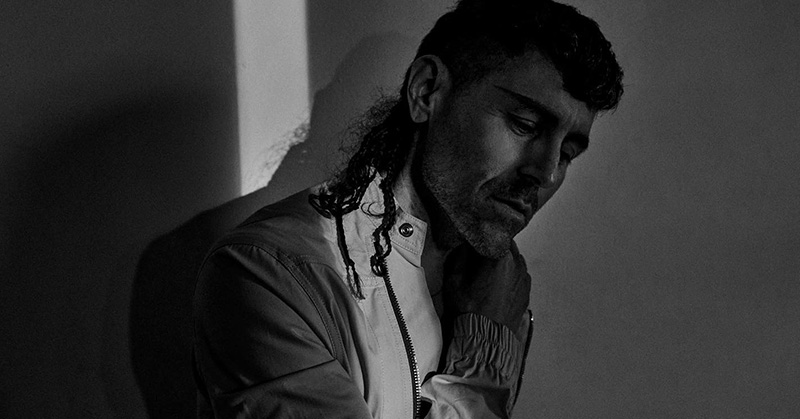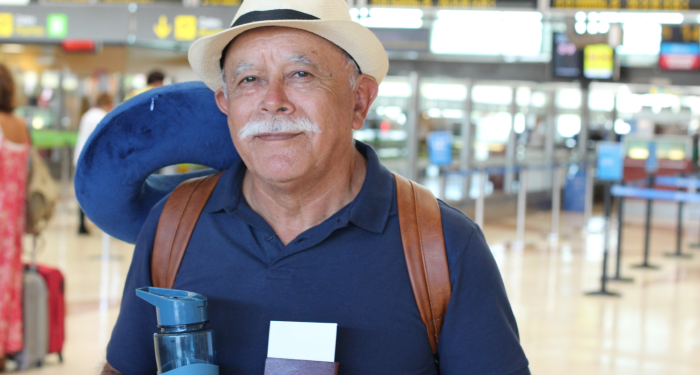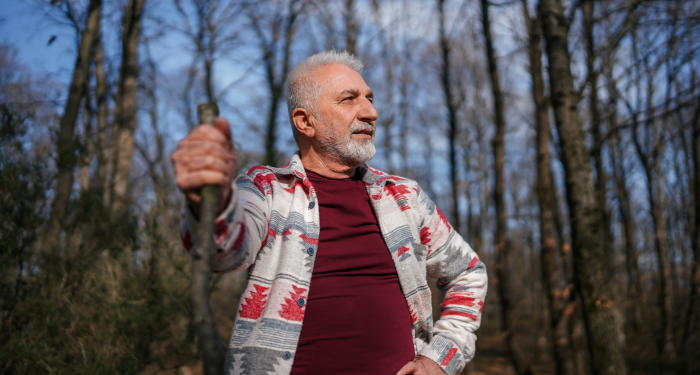Lead singer of punk rock band AFI, Davey Havok is no stranger to veganism—having been vegan for over two decades. As part of the straight edge community in the 90s, he was heavily influenced by its members, who also abstained from the use of animal products. In 2021, AFI released their new album, Bodies. We chatted with Havok to learn more about his music career and vegan lifestyle.
When did you first go vegan, and why?
Davey Havok (DH): I went vegan 24 years ago. In the 90s, the straight edge movement was largely vegan. Being a part of it, I was surrounded by many animal rights activists and thus educated on both the perils of factory farms and the healthfulness of a plant-based diet. I was vegetarian for two years before reading Diet for a New America. After that, I did the right thing.
Wow, so you were vegan “before it was cool.” What was that like? And did you find it difficult to find options while eating out and touring?
DH: To be fair, it was very trendy to be vegan in the community in which I was raised. In fact, there was heavy pressure to be vegan. This was part of the reason it took me so long to make the move to a plant-based diet. I saw people using the lifestyle as an identity (long before social media!)—going vegan for the wrong reason. I didn’t want to be a part of that. However, I soon realized that I couldn’t reconcile consuming animals and celebrated anyone who went vegan despite their motivation. The more of us there are, the better the planet is. Eating on tour was very difficult back then. Aside from only having five to seven dollar food per diem, there simply weren’t options. Gas stations provided nuts and Grandma’s cookies (a default vegan treat). We’d stop at grocery stores to get soy milk and cereal, which we often poured directly into our mouths—little one-two hits we’d munch while sitting on the curb of the parking lots between cities. Taco Bell was an oasis of affordable, animal-friendly bean burritos, but back then, the chain wasn't nationwide. We’d often reroute our drives to find one of the rare fast-food spots. Europe and Japan offered just as little, if not less.
How have you seen the vegan scene change over the years?
DH: My brother and I constantly take pause to appreciate how far the cuisine has come, how much awareness has spread, and how many people embrace animal compassion. That we live in a world where mainstream food chains offer vegan items, and designers like Vivienne Westwood and Rick Owens create pieces with vegans and animals in mind, is surreal. It’s wonderful.
You’ve also been in the music industry a long time. I remember driving around my hometown listening to Decemberunderground on repeat in high school in the early 2000s. It really defined my personality back then, and I’m sure a lot of other people my age can relate. How has the music industry and your personal music style changed over the years?
DH: In attempt to succinctly answer, I will say that technology vastly and permanently changed music. Music suddenly became free. This closed records stores, which were cultural hubs. It changed how music was written, recorded, and performed. It changed music’s perceived value for all post-internet generations. As for my own musical style … with every act I’ve been a part of, my goal has been to create something that is interesting and meaningful to me. This has resulted in many different-sounding albums from different acts over the decades.
What’s it like being the lead singer of AFI?
DH: I imagine it’s much like being the lead singer of any rock band with a similar trajectory.
How did your music duo Blaqk Audio come about, and will you be releasing new music anytime soon?
DH: Blaqk Audio was formed around 2000 out of our love for industrial music and our desire to create vocal-focused electronic music that leaned into pop structures. Touring obligation with AFI prevented us from recording and releasing our first record ‘til '07. Our sixth record should drop this year.
Do you think veganism is punk rock?
DH: I think veganism is strong in the punk community because punks have long stood against meretricious social standards. Punks ask “why” even when the question is uncomfortable. For instance. “Why is it okay for us to torture and murder innocent creatures for our own enjoyment?” Despite global moral dissonance, it’s not.
You teamed up with Monty’s Good Burger in Los Angeles to launch a limited-edition shake. What was that experience like, and do you have additional food collabs in the pipeline you can share?
DH: I became friends with the founders of Monty’s through the straight edge community. I love their burgers, aesthetic, and intention and was thrilled when they approached me to collaborate on a shake. Though there are no plans for anything new in the future, I believe the Havok Harvest will return again this fall.
It’s gotten significantly better over the years, but I remember when my younger brother went vegan back in the day, he was stereotyped pretty hard and made fun of. He was into punk music, a little more sensitive than his male peers, and dressed differently. Can you speak on your experience?
DH: Luckily, I had a huge support system, having come from the [straight edge] community. The perception and reaction to veganism has greatly changed for the better in the past years, but occasionally we’re still confronted with ignorance and aggressive self-consciousness from parts of the mainstream. Most of my ethics have long opposed those of the mainstream, so I’ve never let it get me down. Today, we have so much great food and fashion to celebrate.
Besides being a musician and being vegan, what else are you into?
DH: I love film, fine art, theatre, literature, fashion … am very much a music fan …. and have an arguably obsessive relationship with fitness.
Okay, last question: For our readers who are new to veganism, what advice would you give?
DH: I’d just like to say welcome, and thank you for coming along. You’re doing great.
Photo credit: Storm Santos













